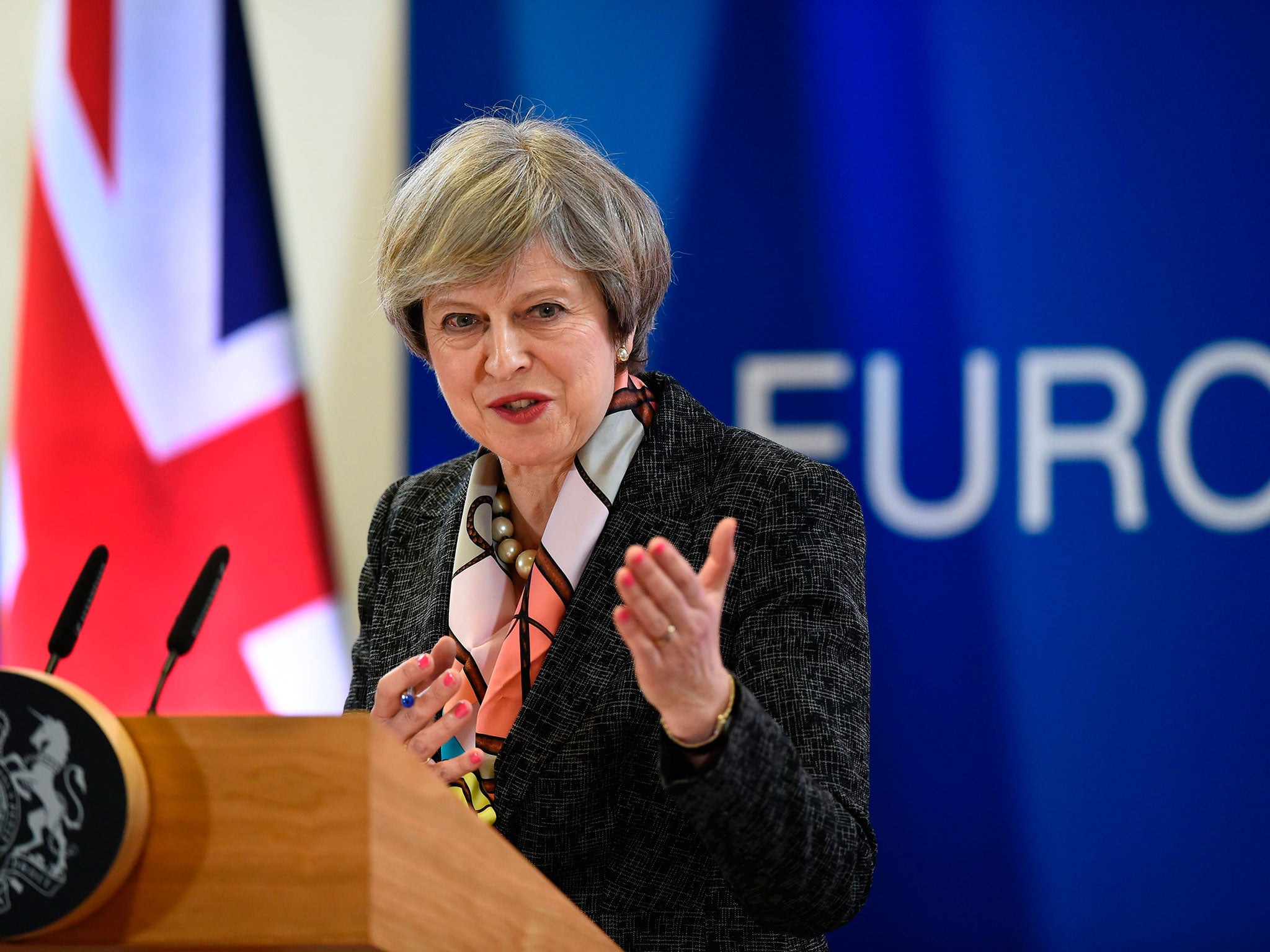As Theresa May prepares to trigger Article 50, she must try to keep the UK together
The UK should face the challenge of Brexit as a union – but will Scotland and Northern Ireland agree, now we know the true consequences of a hard Brexit?

Your support helps us to tell the story
From reproductive rights to climate change to Big Tech, The Independent is on the ground when the story is developing. Whether it's investigating the financials of Elon Musk's pro-Trump PAC or producing our latest documentary, 'The A Word', which shines a light on the American women fighting for reproductive rights, we know how important it is to parse out the facts from the messaging.
At such a critical moment in US history, we need reporters on the ground. Your donation allows us to keep sending journalists to speak to both sides of the story.
The Independent is trusted by Americans across the entire political spectrum. And unlike many other quality news outlets, we choose not to lock Americans out of our reporting and analysis with paywalls. We believe quality journalism should be available to everyone, paid for by those who can afford it.
Your support makes all the difference.Speculation is mounting that Theresa May will invoke Article 50 next week, if the European Union (Notice of Withdrawal) Bill receives the royal assent on Monday. The House of Commons is likely to remove the Lords amendments and send the bill back to the upper house, where Labour peers have indicated that they will not seek to delay it further. Without the support of the official Opposition, the die-in-the-ditch Remainers in the House of Lords will be unable to prevent the bill becoming an act, possibly on Monday night.
The Prime Minister would then be free to write her letter to Donald Tusk, President of the European Council, giving notice of the United Kingdom’s intention to leave the EU in two years’ time.
Some journalists have wondered if she might do so on Tuesday, when she is expected to make a statement in the Commons about the Brussels summit she attended this week. Yet there are good reasons for not starting the clock straight away.
The Scottish National Party holds its spring conference in Aberdeen next weekend, and if Ms May were to invoke Article 50 before then she would more or less force Nicola Sturgeon, the First Minister of Scotland, to respond by demanding a new referendum on independence. The Independent, which opposed independence for Scotland and which supported the UK’s membership of the EU, sympathises with the desire of the majority of Scots to remain in the EU. If that majority believes EU membership is more important than keeping the UK together, we would respect that wish, but there is no decisive polling evidence yet to suggest that this is what the people of Scotland want.
In which case, we would hope that the UK would stay together, to face the challenge of Brexit as a union. And what applies to Scotland applies also to Northern Ireland.
There has just been a divisive election in Northern Ireland, where the parties have until 23 March to negotiate an agreement that would preserve a devolved executive in the Assembly. Ms May might be well advised to avoid taking risks with the Union and to hold off until the end of the month before taking the next, momentous step towards Brexit.
The potential dangers for the whole of the UK of leaving the EU are underscored by the leaked Treasury analysis on which we report today. We suspect that the chances of the UK crashing out of the EU without a Brexit deal are higher than most people think – and that the consequences of doing so are likely worse than many realise.
The Treasury paper spells out in hitherto undisclosed terms what defaulting to World Trade Organisation (WTO) rules could mean. It could mean food prices rising by 3 per cent, and the imposition of tariffs averaging 14 per cent on agriculture exports to the EU and 4 per cent on non-agricultural exports. It warns: “The UK would have less access to the single market than Pakistan, Rwanda or Yemen.”
That is why it may be that trying to obtain a soft Brexit in the negotiations with the EU27 that are about to begin may be hopelessly overambitious. The British Government’s negotiating priority must be to avoid a hard WTO Brexit at all costs.
Ms May should not rush into the Article 50 process. Brexit is likely to be bad enough for the peoples of these islands without breaking up the UK as well.
Join our commenting forum
Join thought-provoking conversations, follow other Independent readers and see their replies
Comments